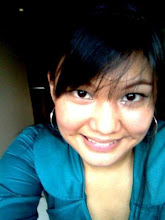People would often blame media for the apparent moral decadence occurring in Philippine society. The distorted values media projects are said to have effectuated negative repercussions in society as they greatly influence the actions, dispositions and principles of people. However, these assumptions seem to hold no water for they undermine other factors that form part of a people’s culture, such as, the family, school and environment. These facets of society equally contribute to the formation of a culture. Hence, media should not to be seen as monster eating the sound values of the country. Before judging if it really causes ill effects to Philippine culture, perhaps it deserves to be studied objectively.
Does media dictate the substance of Philippine culture or it is our culture which dictates the substance of media? Such is the question we ought to ask.
Thirty five university students from different universities in the country conducted a rigorous research study to address such issue with media. They were convened by UNIV in its Final Paper Presentation held at Tanglaw University Center.
The UNIV congress is an international gathering of students organized by Istituto per la Cooperazione Universitaria (ICU), an Italian non-government organization that promotes social projects and developmental activities on an international scale. UNIV annually conducts a research study on a particular issue besetting present day society which is deemed to hold great impact on human development. University students all over the world are invited to take part in the project and are given the privilege to research on the chosen issue in the light of their respective disciplines and cultural backgrounds.
This year’s theme is "Projecting Culture through the Language of Mass Media". Eleven groups of students coming from different universities participated in the event. Four groups concerned themselves on the role of media makers and media consumers in the shaping of the Filipino culture. The titles of their papers were "Media Watch: The Filipino Parents’ Role in Mass Media", "Parental Guidance: Using Television as a Tool to Teach Children", "Towards Multi-People Perspective: Resuscitating Indigenous People in the Filipino Consciousness Through Mass Communication" and "Women Journalists Towards Empowerment: Strengthening the Media Industry for Society". On the other hand, three groups tackled the so to speak, "filipinization" of media, that is, how has the Filipino culture permeated media and eventually transform its language into the "Filipino language". These were the titles of the papers that delved on this topic: "Thinking out of the TV Box: The Unconventional Telenovela—An Anthropological and Historical Study of Philippine Telenovelas", "Redefining Beauty: The Philippine Advertising Media’s Portrayal of Feminine Beauty" and "The Filipinization of Mcdonald’s Television Commercials in the Philippines ". Moreover, two groups zeroed in on the impact media hold in shaping ethnic identities in the country. The papers on the subject are "Race, Ethnicity and Solidarity: Filipino Ethnic Youth Groups in the Waves of Migration and Globalization" and "Dinagyang: A Kaleidoscope of Ilonggo Culture". Finally, two papers explored the so called "alternative media". The paper entitled "Youth’s Apprehension towards Internet and Information Technology and Mass Media: An Exploratory Descriptive Survey of University of the Philippines’ Students" focused on the cultural significance of internet and information technology in Philippine society, while the paper entitled "A Study on How Texting Affects the Youth and Their Relationships" zeroed in on the effects of mobile phones in human relationships.
The participating universities were: Ateneo de Manila University, Ateneo de Davao University, De La Salle University, University of the Philippines – Diliman, University of the Philippines – Visayas, and University of Asia and the Pacific.
The event was also graced by Rachel Khan, Executive Director for Center for Media Freedom and Responsibility, who gave the keynote speech.
Tanglaw University Center in Quezon City served as a "laboratory of ideas" where the papers were presented. A rather intellectually enlightening research convention occurred there that time. By searching for the objective truths about media, the researchers were able to liberate media from myths, prejudices and misconceptions. They were able to see media through an enlightened glass, through a positive light.
After the UNIV Final Paper Presentation in the Philippines , UNIV International Congress will be held this Holy Week of 2006 in Rome , Italy .
Sunday, October 25, 2009
Subscribe to:
Posts (Atom)
